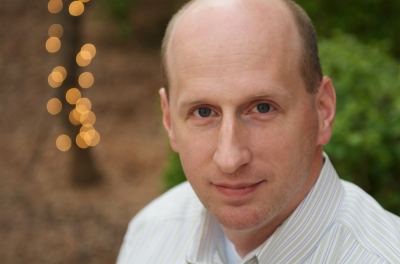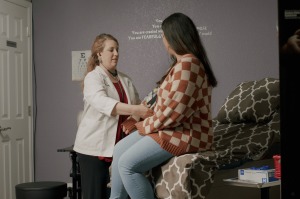Let's Apply Some Common Sense to the Police Shooting Debate

One of the most frustrating aspects of the loud and vitriolic debates over police shootings is the extent to which they ignore common sense and human nature. In the quest to find grand narratives, we're too quick to discount the simple realities of how human beings react during times of stress, and we minimize the reciprocal moral and legal responsibilities that citizens owe police and police owe citizens.
First, when wary, angry, and/or frightened citizens interact with wary, angry, and/or frightened police — often at odd hours and in moments of maximum stress — there will inevitably be a certain number of both tragic mistakes and heinous crimes. Thus, it stands to reason that we should endeavor to decrease — not increase — such interactions. Yet our regulatory state keeps criminalizing more and more conduct. In two of the worst recent incidents, Eric Garner's choking death and Walter's Scott's apparent execution, the victims were facing prosecution for violating petty or stupid criminal laws — selling loose cigarettes in Garner's case and failing to pay child support in Scott's case. Regarding child support, it's idiotic policy to lock deadbeat dads in debtors' prisons. According to one study of South Carolina jails, one out of every eight inmates was behind bars for falling behind on child support. Yet inmates are notoriously poor earners, and stints in prison tend to exacerbate chronic unemployment.
Second, it's always a bad idea to flee from arrest, resist arrest, or introduce any unexpected behavior into an encounter with police. Flight, resistance, or unexpected actions instantly increase the chances of mistakes or misconduct. I have a rather vivid memory from my own life. My senior year of college I spent my spring break backpacking in Colorado with two close friends. Because we had no money for flights, we drove my 1986 Chevy Nova (no, not the cool Nova but the Chevy version of the Toyota Corolla) across the country. On the way back, I was behind the wheel at about 3:00 a.m. in downtown Kansas City, when I changed lanes without signaling and nearly collided with a police car. He turned on his lights, and I looked for a place to pull over. Because we were on a bridge, there was no shoulder. So I exited from the interstate and pulled into the parking lot of an abandoned gas station.
Big mistake.
The officer approached the vehicle with his gun drawn, screaming for me to get out of the car. I exited, with my hands up, and he proceeded to do a quick search of the car to determine what we were carrying. He immediately saw a large knife that we used while camping. He grabbed it, threw it on the ground, threw me against the squad car, very thoroughly and painfully frisked me, and then put me in the back of the car with the threat of arresting me for carrying a concealed weapon. While he was running a background check, he started yelling at me for not pulling over on the side of the interstate but taking him to an "ambush." He said he'd been shot at earlier this week and wasn't going to let any punks put him down. As my future hopes and dreams were flashing before my eyes (I'd just been accepted to law school), he discovered I had no record or outstanding warrants, so he let me go with a traffic citation.
I tell that story not to defend or condemn the cop, but to say that unexpected actions introduce variables that you, the citizen, cannot control.
Third, citizen misconduct and unexpected events may decrease the margin for error, but they do not relieve officers of moral and legal responsibilities to react appropriately. There is a difference between saying that a high-stress, instant-reaction situation decreases the margin for error and saying that, in essence, "all bets are off." There are police who — either through rage or panic — respond horrifically to stress, and it's silly to close ranks behind them simply because they wear a uniform and were encountering a citizen doing something wrong. Yes, it is entirely correct that one has to grant a large amount of discretion to officers making instantaneous life-and-death judgments, and that armchair quarterbacking can be extraordinarily disconnected from the facts on the ground. But it's also true that some cops utterly and completely botch those situations — badly enough to lose their jobs — while others exploit those situations to unjustly punish the very men and women they're supposed to keep safe.
If our cops face less stress and danger than combat troops on patrol in Afghanistan and Iraq, and if they're generally older and (hopefully) more mature than your average enlisted soldier, shouldn't we expect at least as much good judgment from them in the heat of the moment? And if they don't show that good judgment, shouldn't there be consequences — even if the misjudgment isn't criminal?
Fourth, just as it is foolish to deny that there are racist cops (any large population of people will include some racists), it is foolish to act as if it is somehow "open season" on young black men. America in 2015 is not the Reconstruction-era South, and it is a simple fact that the odds of a black male dying at the hands of a police officer are infinitesimally small. The odds of a black man dying in an unjustified police shooting are even smaller.
TIME magazine, as part of its sprawling "Black Lives Matter" cover package, highlighted a grand total of 14 such incidents in a more than three-year span. One of them (Trayvon Martin) didn't involve a police shooting — and the jury in that case acquitted George Zimmerman after hearing considerable evidence that Martin had attacked him and was smashing his head onto the pavement. Another, the Michael Brown shooting, spawned the now famous "hands up, don't shoot" narrative, which has since been thoroughly and completely debunked. Other incidents appear unjustified, such as the shootings of Walter Scott and Levar Jones, but the bulk of them involve highly ambiguous evidence, with investigations ongoing. In a nation of more than 300 million people (and tens of millions of smartphones), it's intriguing that those who claim that we face a national crisis so often have trouble coming up with more than a tiny few truly egregious examples. I do not say that to minimize the need for individual justice in those cases. Sometimes, police officers should face juries. I say it because the "open season" narrative is simply not true.
Our nation is imperfect, and police misconduct absolutely occurs. But the story of police shootings in America isn't a story of mass-scale police slaughter; it's one of infrequent, tragic incidents that arise as a natural byproduct of mass-scale, intensely stressful interactions between a very human police force and the very human citizens they're sworn to protect.




























